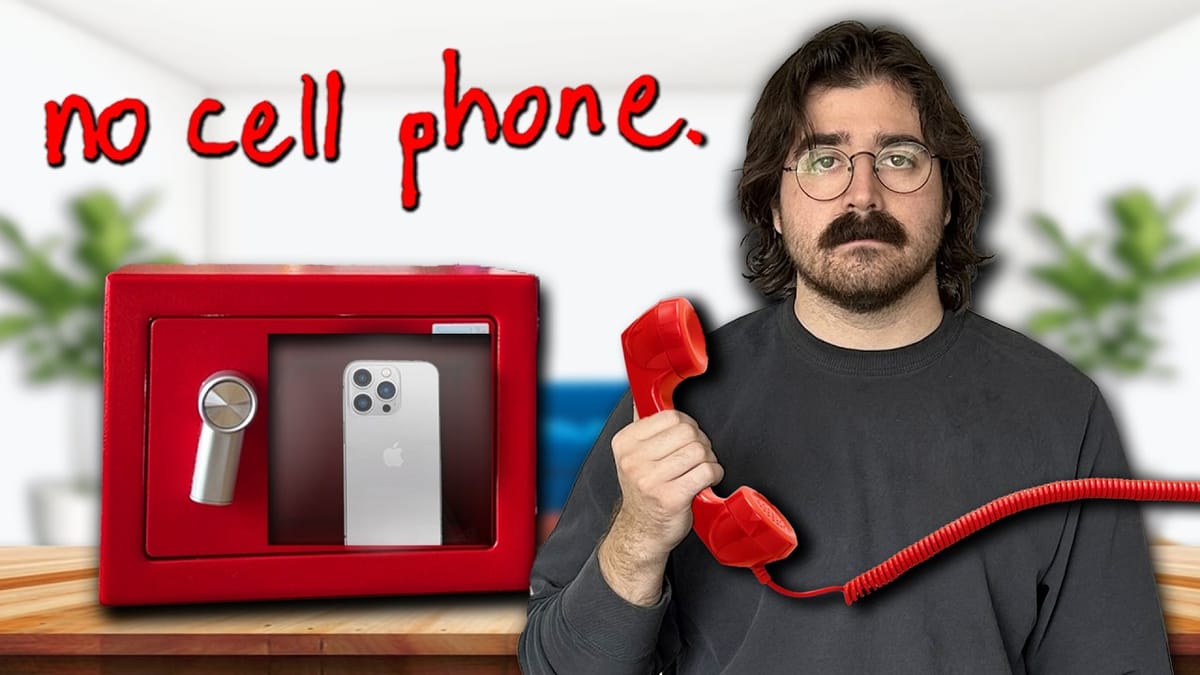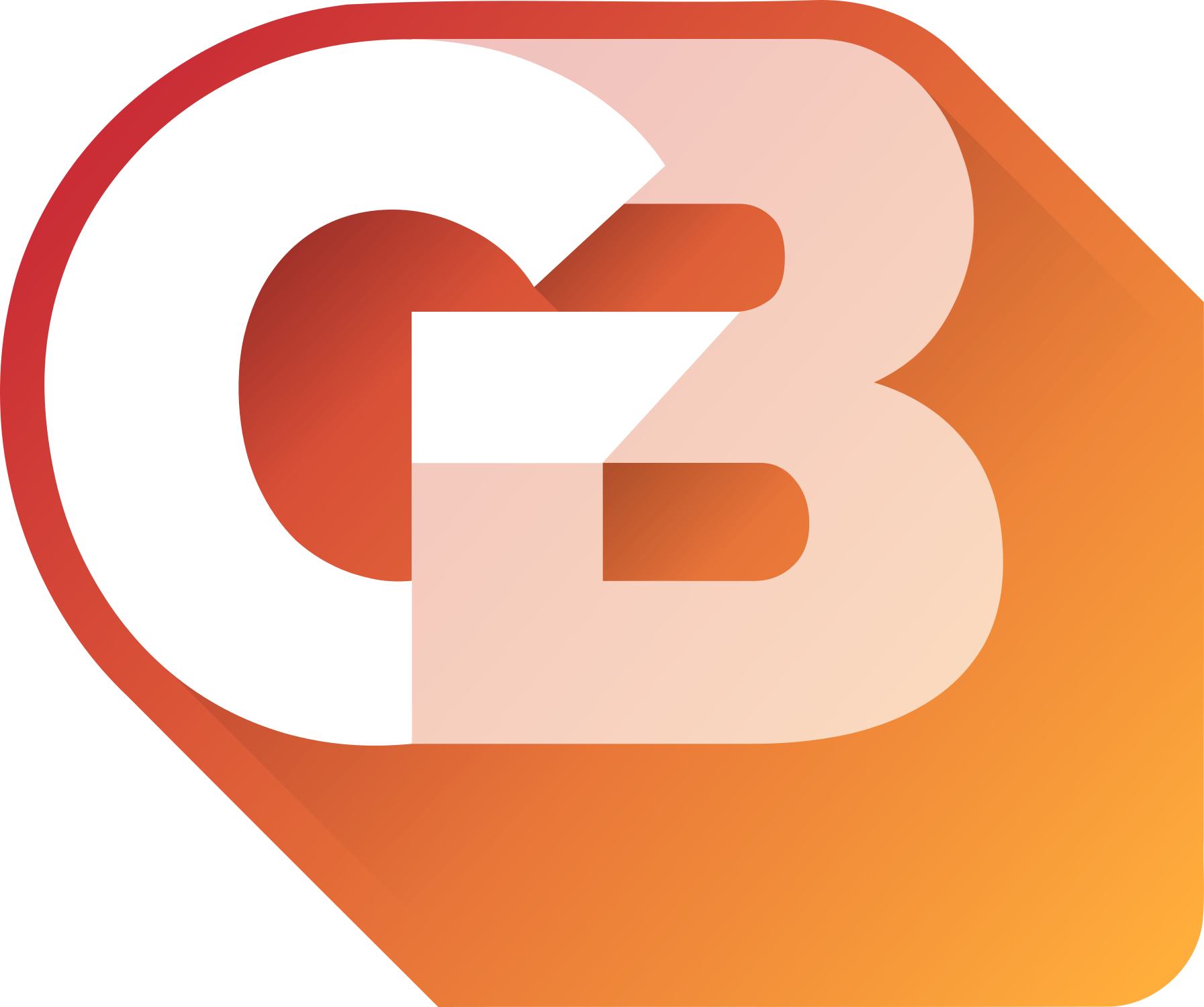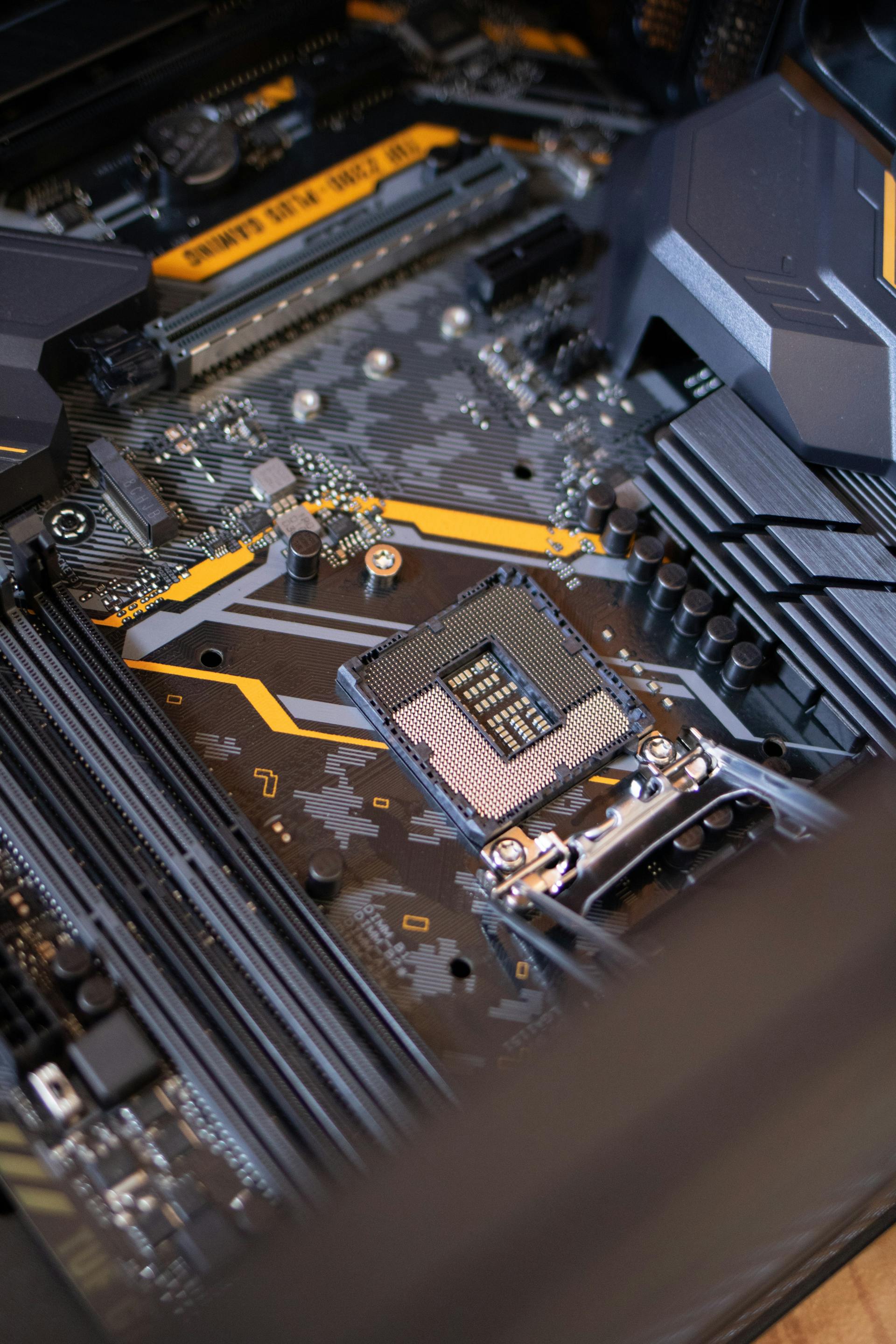What Eddy Got Wrong About His Phone
Eddy's solution of locking his phone in a safe is not a sustainable solution. So I wanted to explore what I believe to be the next best thing!

If you're like me, you enjoy a good YouTube essay. The longer, the better... at least in my case.
Yesterday, I watched Eddy Burback's 46 minute video titled "I hate my phone so I got rid of it" and I have a lot to say. Hence this post.
It's worth a watch and I have to say that, as a millennial who came of age without even a dumb phone in my pocket, it's interesting to see how growing up with smartphones has affected young adults.
But he got something wrong. Not the overall thesis of his video, mind you. But there was some blame that he placed on "his phone" that really should be directed somewhere else. It's that "somewhere else" that I want to talk about. (And what we can do about it...)
What He Got Right
Smartphones? There's nothing smart about them. They're deliberately addictive, they're designed to make you anxious, to spy on you, and they just generally suck. Sure, they introduce some conveniences (like GPS navigation or buying tickets to the movies), but smartphones are an overall net negative to the human experience.
Yet it's also unrealistic to think that you can go 100% without a phone today. In Eddy's video, he pointed out many of the inconveniences of going phoneless including services that require you to have a smartphone.
I'm not going to try to argue with him on those points because he's right. Towards the beginning of his video Eddy states, quote:
A few weeks ago, I was scrolling through Twitter, an app that I hate, wasting my time... I am constantly using my phone to see things that I don't want to see. Over the last few years, it has become increasingly unfun to use this thing. So why do I keep using it? Apps and social media have gotten much better at drawing me in, but lately I'll break outta my screen time feeling like nothing of value happened.
Did you catch that, though? The problem isn't his phone. It's Twitter. Like, for real. It's not just Twitter, though. It's Instagram. It's Facebook. It's TikTok. It's Discord. And, yes, it's even my bread n' butter: YouTube.
If I could snap my fingers and delete those apps from existence I wouldn't hesitate for a split second. In that moment, the world would instantly become at least 25% better. But why are those apps so bad? And, realistically speaking, what can we do to actually fix the issue?
Identifying the Problem
The problem isn't your phone. You can log in to Snapchat, X, Insta, Facebook, TikTok or YouTube from your desktop or laptop, too. Collectively, they're what I call "social brokers." They're unnecessary, wasteful middle-men who ransom your online interactions and hold your friends hostage.
I believe there's a very real argument to be made that these services are more addictive when used on your phone rather than from the web browser on a computer. I think that's a story for a different post, though.
Either way (phone or computer), the doomscrolling algorithm is the same. They're not just accidentally addictive, either. These are purpose-built, finely-honed addiction machines. They're designed from atom to get you hooked and keep you engaged. Why?
So they can show you more ads, of course.
They make money when you lose yourself in their perfectly coiffed, AI-enhanced, weapons grade timeline. And you? You lose a piece of yourself in the process.
The problem is the algorithm which has "optimized" itself to the point where you never see the posts that come from your friends. Now, all you get is slop, trash, and the occasional, mildly traumatizing gore-filled glitch. Social media has burrowed its way into our souls and assimilated our minds with well-curated hate and fear.
And they use the data they collect about you--likes, shares, comments, reposts--to reinforce their algorithm to make it more effective and train their machine mind how to manipulate you further.
It's live, honest-to-goodness human experimentation. Social media as an emotional vivisection. And we make the choice, every single day, to subject ourselves to its torturous whims.
We're Not Wanting for Solutions...
The fact is: we have a way out of this mess. It's not that everyone has to give up their phones. Nah. That wouldn't be practical. The solution is also not that we need a supermassive solar flare to destroy all tech and provide us a digital respite. Nope.
The first step is simple: just uninstall the apps.
I'm proud of the fact that I usually use my phone for less than two hours a day unless I'm going somewhere. And even then, my time on my phone is almost exclusively business.

I'm not trying to pat myself on the back here. I'm trying to prove that what I'm proposing is possible!
The idea is simple: free yourself from the algorithms! You can do this yourself. If there's social media in your life (be it Twitter, Bluesky, Instagram, or YouTube) you can either find alternative clients (Grayjay is a good one for YouTube or just use your browser) or you can use alternative services altogether.
For example, I've become a Fediverse evangelist. The Fediverse is a collection of Social Media-adjacent services that interoperate with each other. I have a Mastodon account (@gardiner_bryant@mastodon.online) which is similar to Twitter, but without the algorithm. From my Mastodon, I can follow someone on PixelFed which is like Instagram, but without the algorithm.
From my Mastodon, I can like, comment, and reshare posts on any other Fediverse service. It's pretty neat and all your follows--regardless of what service you're using--appear in your feed. They look and behave like regular posts. You can engage with them and it all just works. And it works well!
But the most amazing thing? You only see content in your feed that you opted in to seeing. And your feed is a chronological history of posts. Nothing more, nothing less.
Ramifications
If you're a business owner or an online creator, you'll know how frustrating using social media can be. I've personally witnessed the shifting sands under my feet and I hear my clients complain about it all the time, too. You post something and then the platform holds your followers at ransom. You have to pay to boost your post so that the people who are following you actually get to see what you're posting. This is the inevitable enshittification of the corporate-controlled social broker platforms.
But how are Fediverse services different? The fact is, I have several Mastodon accounts, a PixelFed, and a PeerTube account. Mastodon.online is a great place to be, but I also have an account on Mastodon.social. Much like emails can be sent between different domain names, so too can social interactions via these federated platforms.
These accounts follow each other and when one posts something, I can share it from the other to get more eyes on it. Thus, ideas can be shared and found. And it hearkens back to the days when social media was about being social, enjoying the marketplace of ideas, and discovering varied perspectives.

And since there's no algorithm to manipulate you emotions or your attention, these platforms have a different feel to them.
There's no landlord pushing enraging garbage in your face. There's no Zuckerborg no Musk that's watching everything you do and rewarding antisocial ragebait.
Importantly, moderation is handled on a per-server basis, often by people you know. You can join a general server, or one like lgbt.tech that welcomes a specific audience. (Can you guess which one?)
These services are designed for the user, not the platform. It once again democratizes the web, gives us control over our experience, and builds healthier, more organic communities.
Conclusion
It's tempting to blame all our issues on our phones. They suck, I get it. And certainly, some of us have become cybernetic zombies who has outsourced a portion of your emotional and mental capacity to your iPhone.
But in the video, Eddy didn't just lock his phone in a safe... he changed his behavior. He knew he could use iMessage on his Macbook but he ended up not wanting to.
At the end of the day these technologies market themselves as a way to keep in touch with your loved ones. But the reality on the ground doesn't match the advertising bologna. What these techbros have been doing for decades, now, is acting as gatekeepers; insulating you from your friends and family and profiting from it.
Abandoning social brokers like Facebook, Snapchat, Discord, TikTok, and Instagram is the first step you can take to drawing closer to your friends. But using ethical social media apps should be our next step to reclaiming the Internet as a human-first community!
You can learn more about the amazing options for ethical social media by getting subscribed to my newsletter here.


